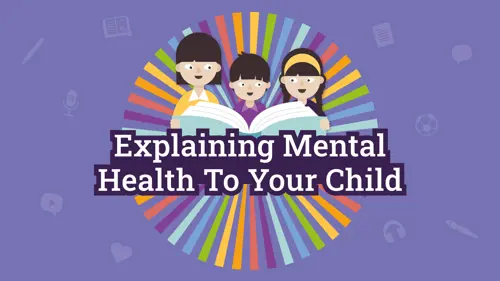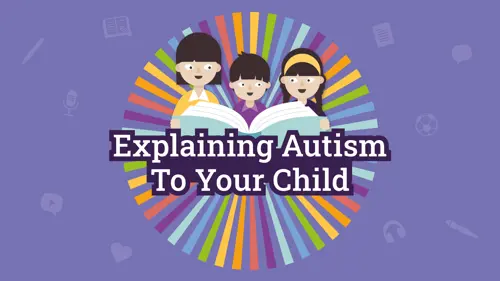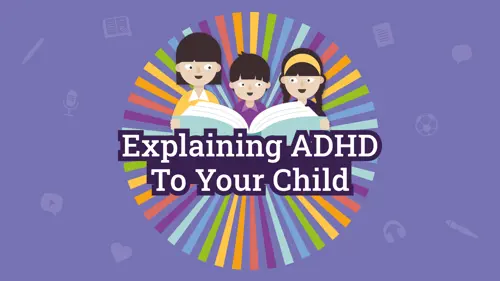Navigating neurodiversity
Helping your child understand their neurodivergent sibling can be challenging. It is important that you take the time to explain what neurodivergence means in simple, age-appropriate terms.
Get the conversation started...
Work through our sibling support activity pack together to encourage open conversations, helping your sibling child feel supported, understood, and valued.
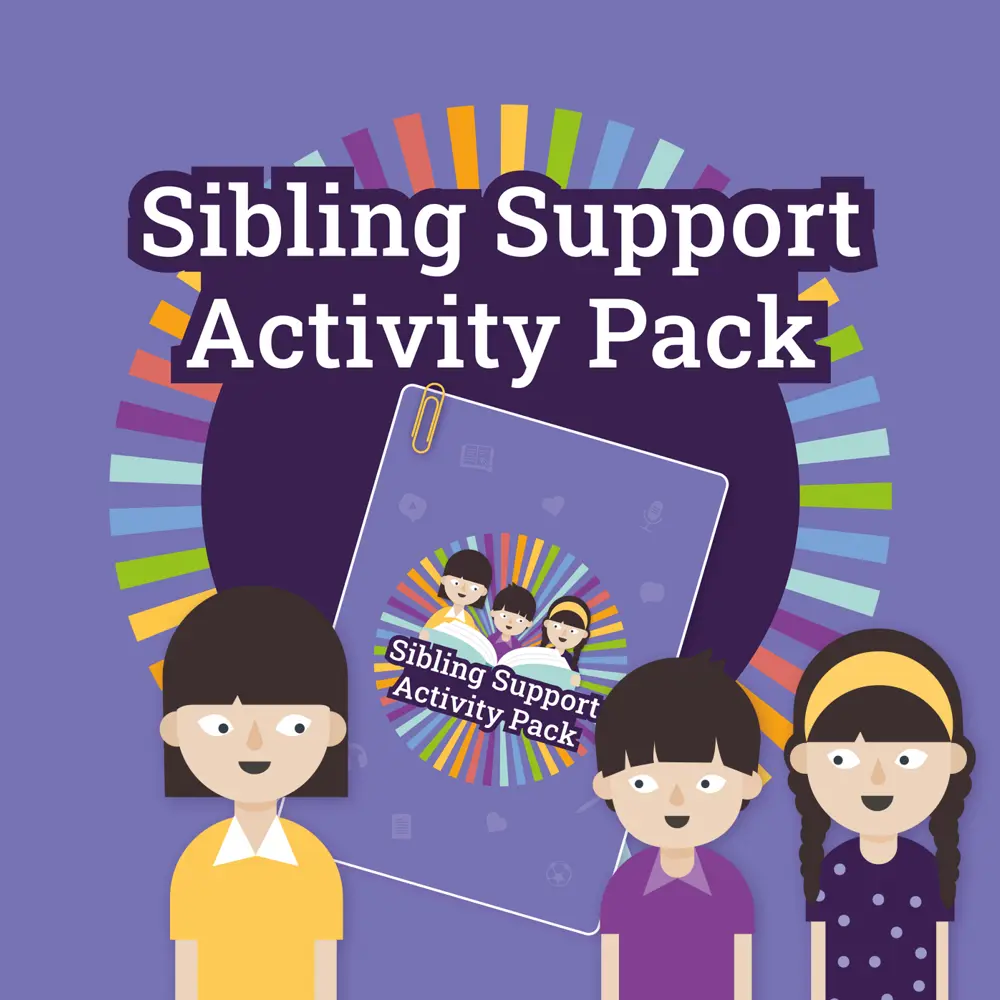
Understanding emotions
This comic strip will help siblings to self-identify and encourage children and young people to embrace their neurodiverse family.
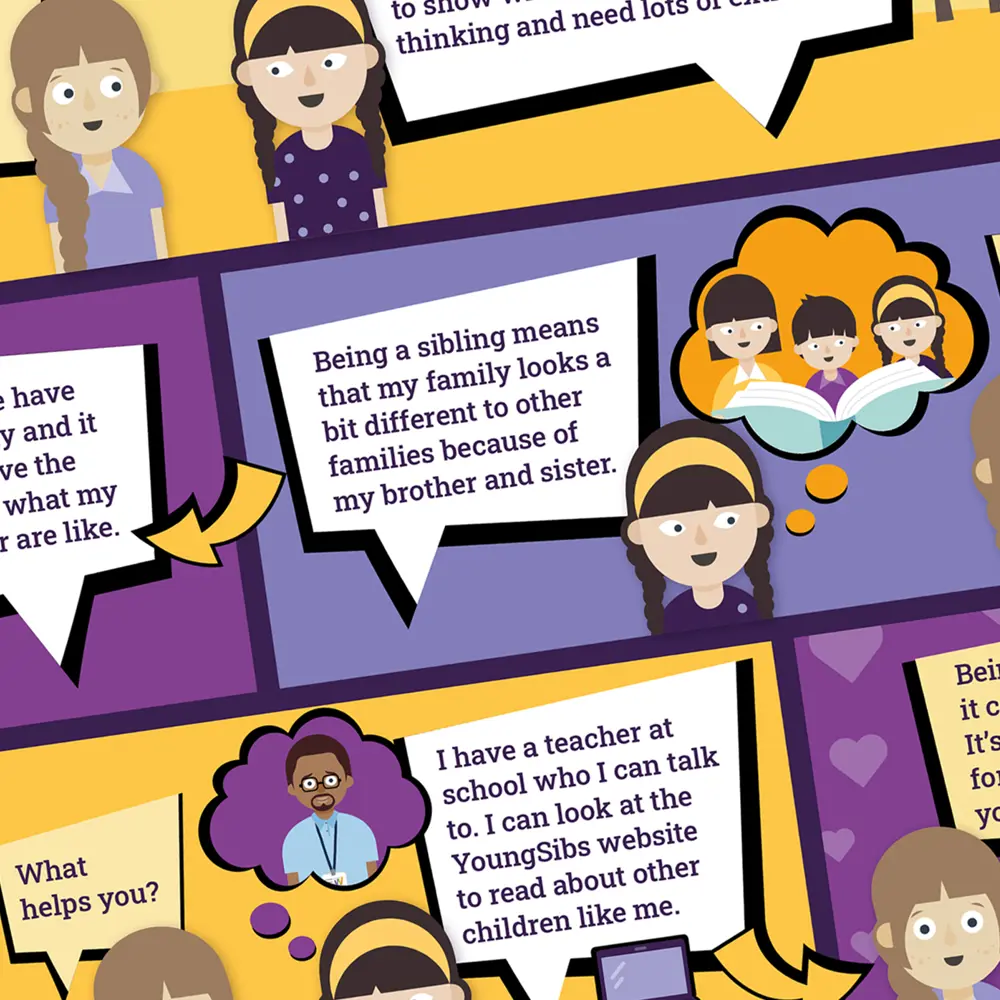
Helping school understand
Building positive relationships with your child's school is fundamental to their learning. Here, our friends from the charity, Sibs, share insightful statistics, stories and strategies so you can with your child's school to support them.
Top tips for empowering your neurodiverse family
Siblings value regular time with a parent even if it is only five minutes every day. While planned days out or treats can be great for dedicated sibling time, they need to be seen and heard daily to help them manage the day-to-day issues which crop up when you’re a sibling.
Siblings need to know that all feelings are OK. It is normal to feel angry, guilty or jealous and they should be encouraged to name these emotions. There should be no shame attached to any feeling, and helping siblings understand their emotions will lead to improved mental health over time.
Siblings very often want to be helpful. They see when parents or carers are struggling and want to step in. Although this is to be applauded, it’s often not the best choice for their wellbeing. Try and avoid relying on the them for regular care and seek external support if you are struggling.
School can be hard for siblings. The more that pastoral staff know about what life is like at home, the better placed they are to help, so share as much as you can about their home life. Siblings often put their educational needs below the needs of their brothers and sisters. They should be encouraged to prioritise all aspects of their education and academic achievements and see themselves as just as important as their brothers or sisters with additional needs.
A sibling can feel guilty or anxious about living a life which may not necessarily include their brother or sister on a day-to-day basis. Whilst this is understandable, it’s vital to instil a sense of independence and autonomy in them from an early age. They should be actively encouraged to have friends, interests and their own sense of self to ensure future wellbeing.
The information required by siblings change over time. A younger child may be happy with simple answers to straightforward questions. An older child may need more time to process and discuss deeper issues. Always respond to requests for information with clear answers, repeating the question back to the sibling to show that you understand the information they need.
Siblings are experts in knowing what makes their brother or sister laugh so help them to use this skill by encouraging them to play games together. Simple throw and catch games, drawing activities or outdoor play can help them both bond and appreciate each other.
Siblings need time alone and time with their friends. This is normal and shouldn't be seen as a negative, if they opt to not play a game or go somewhere on a family trip. If possible, a sibling’s request to have respite time away from their brother or sister should be respected and accommodated as a valid choice, promoting good mental health and self-care.
The future is a scary prospect for siblings. How will their brother or sisters’ health and needs change? Will they be expected to care for them? Will this affect their life plans? As much as possible, involve them in family conversations and plans for the future. Simply acknowledging that parents may not have all the answers but will keep talking to you, is hugely helpful to siblings.
It can be all too easy to see a sibling’s achievements solely in comparison to their disabled brother or sister. However, when they win a prize, has a great day at school or learns a new skill, it’s important to keep the focus solely on them – whatever they have achieved it’s because they are fantastic, purely because they are themselves.
Did you know we release a new podcast episode each month?
Tune in to hear expert insights exploring ADHD, autism, mental health & more.



